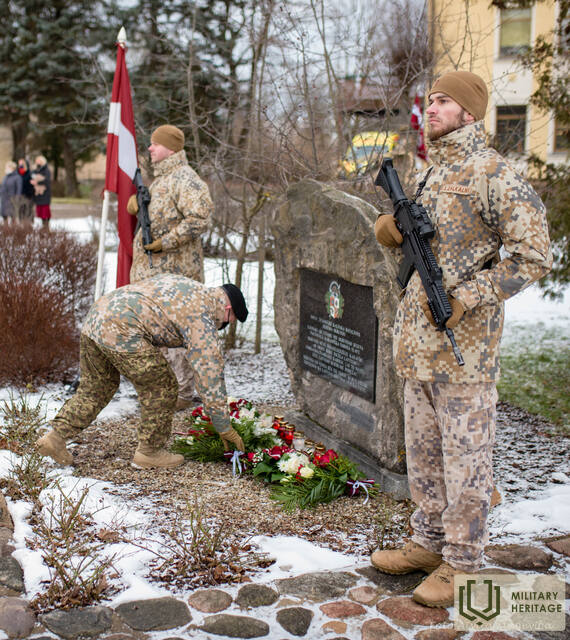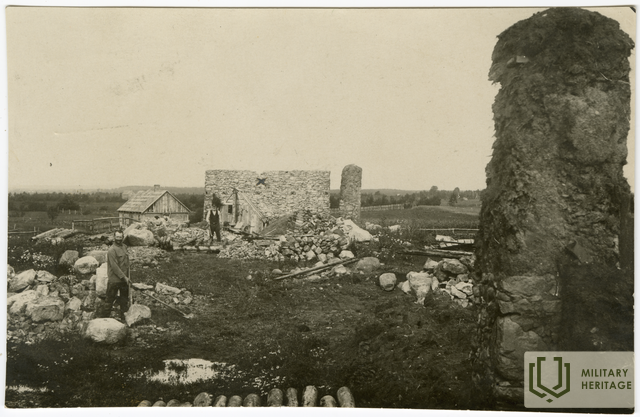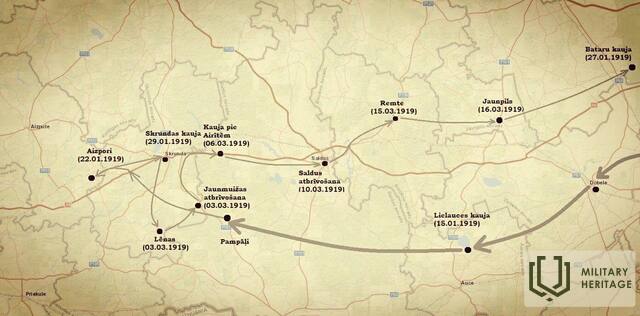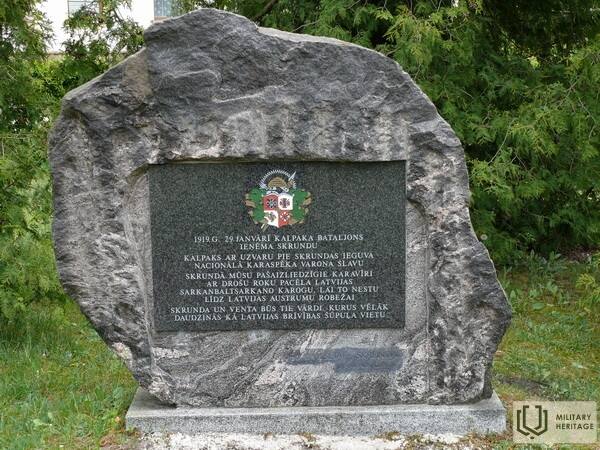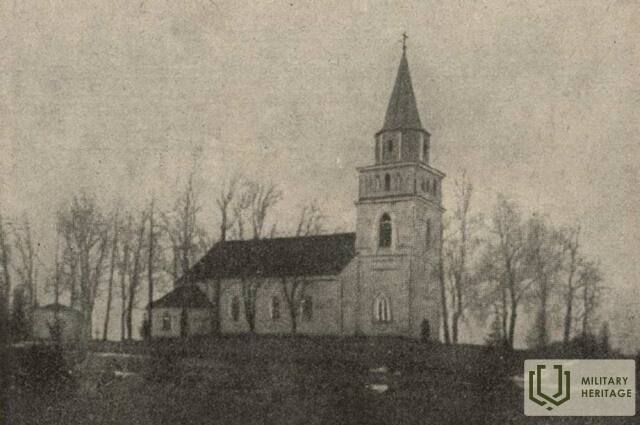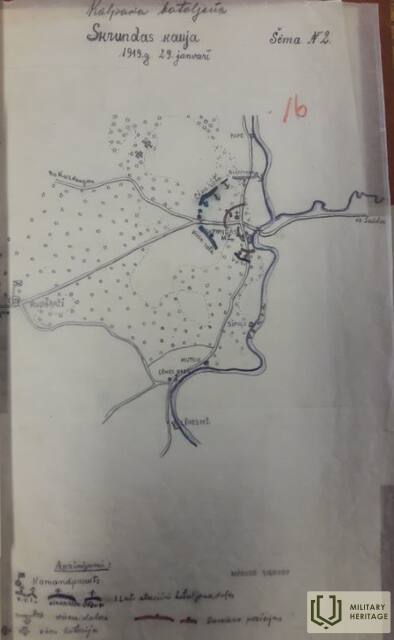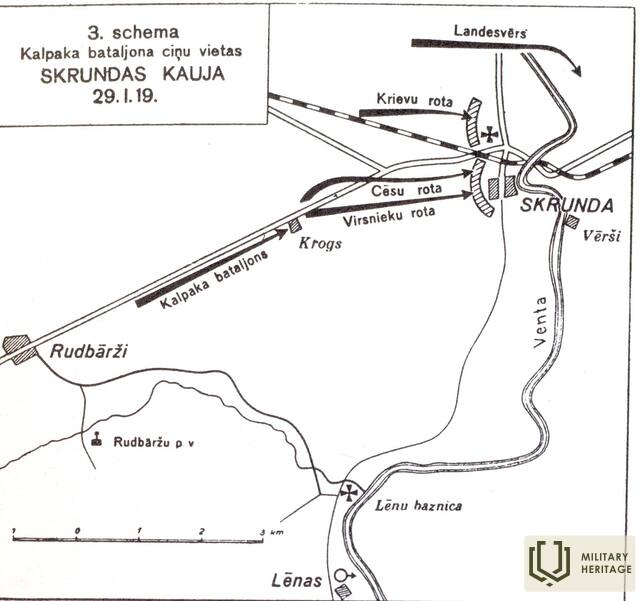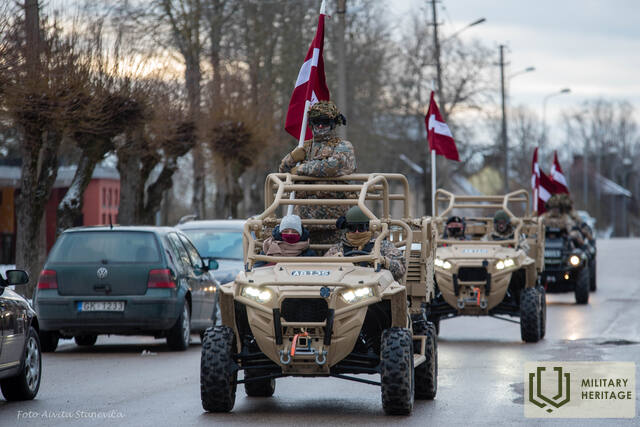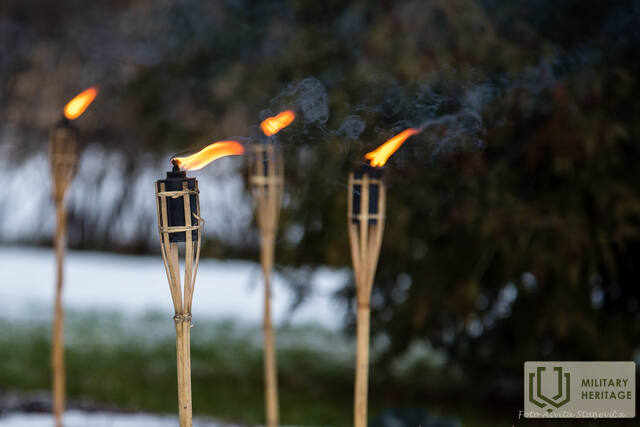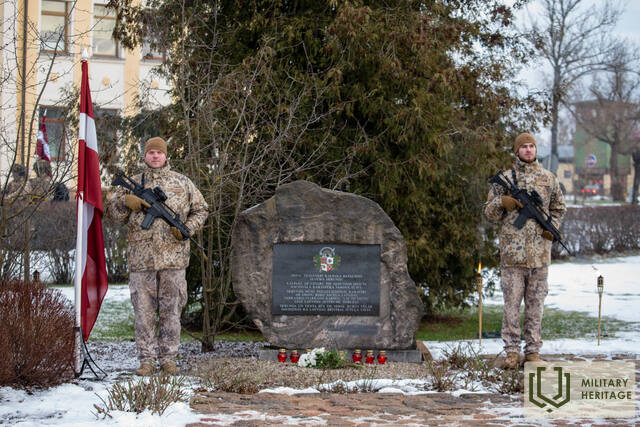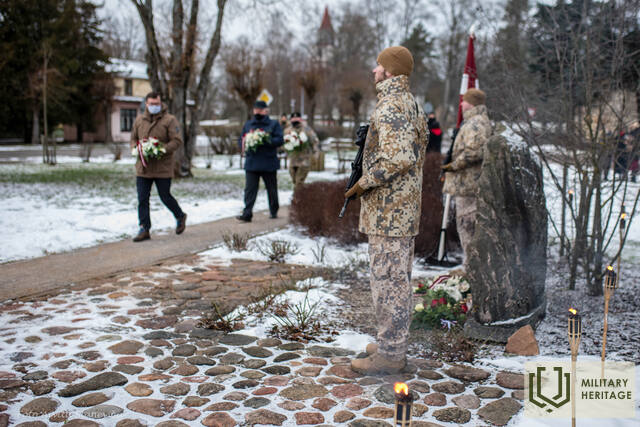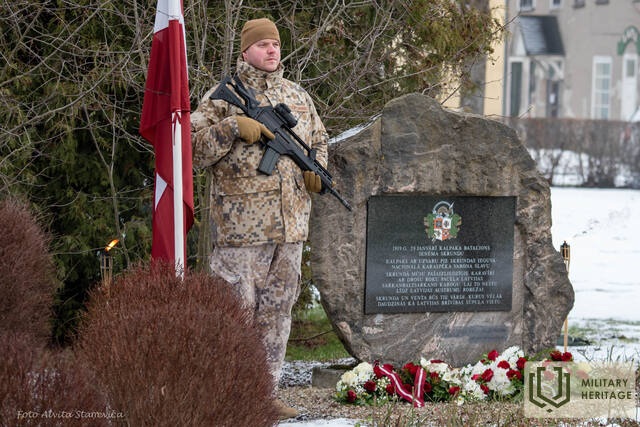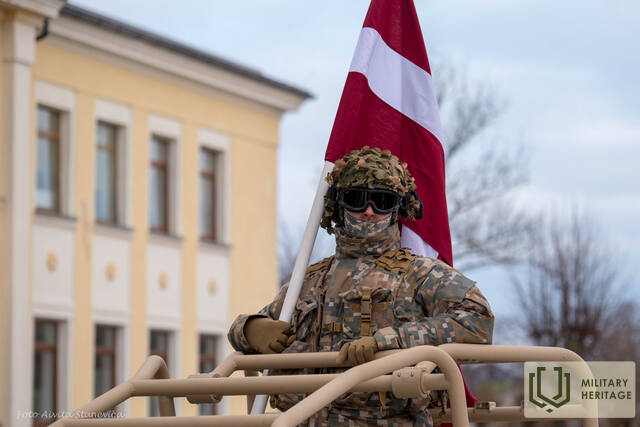Skrundos mūšio memorialas ir vėliavos diena
Memorialinė vieta

Skrundos mūšio memorialas yra Skrundos centre, Oskaro Kalpakos parke netoli Skrundos kultūros namų, Kuldygos ir Liepojos gatvių sankryžoje. 2005 m. prie memorialo buvo pastatytas akmuo, skirtas 1919 m. sausio 29 d. mūšiui atminti, kai Oskaro Kalpako vadovaujamas batalionas kartu su vokiečių ir rusų Landesvero daliniais išvadavo Skrundą nuo bolševikų. Vėliavos dienos tradicija tęsiama nuo 2004 m., minint pirmąjį iš bolševikų išlaisvintą miestą ir jo išvaduotojus, kurie 1919 m. sausio 29 d. Skrundos bažnyčioje iškėlė Latvijos vėliavą.
Pirmaisiais Nepriklausomybės karo mėnesiais Latvijos laikinoji vyriausybė, spaudžiama bolševikų, sparčiai prarado teritoriją. 1919 m. sausio 22 d. bolševikai užėmė Skrundą. Po savaitės, sausio 29 d., ankstyvą rytą, prasidėjo puolimas Skrundai atsiimti. Latvijos atskirasis batalionas, vadovaujamas pulkininko leitenanto Oskaro Kalpako, turėjo pulti Rudbāržu-Skrundos plentu ir išstumti bolševikus iš Skrundos. Po to turėjo vykti vokiečių dalinių flanginis puolimas, kurio užduotis buvo sunaikinti artėjantį priešą, o rusų kuopa turėjo pulti tarp Latvijos ir Vokietijos dalinių, orientyru naudodama Skrundos bažnyčią. Puolimą taip pat rėmė vokiečių artilerijos baterija. Puolimo dieną buvo 15 laipsnių šalčio, švietė ryški saulė, kalpakai turėjo kirsti giedrą lauką, o bolševikai slėpėsi dvaro akmeniniuose pastatuose. Bolševikai atidengė ugnį, kai užpuolikų grandinė buvo nutolusi apie 300 metrų, kilo abipusis susišaudymas, ir Oskaro Kalpako vadovaujami kareiviai sparčiai puolė į priekį, priversdami priešą nutraukti ugnį ir trauktis per Ventą. Po maždaug 3 valandų kovos Skrunda buvo užimta apie 9 val. ryto, Latvijos atskirajame batalione buvo sužeisti tik 2 kariai.
Skrundos mūšis turėjo didelę reikšmę Latvijos laikinosios vyriausybės ginkluotų Speko karių moralei, nes tai iš tikrųjų buvo pirmoji reikšminga pergalė mūšiuose prieš bolševikus. Be to, pats vadas Oskaras Kalpakas mūšyje demonstravo ypatingą drąsą, savo pavyzdžiu skatindamas karius nebijoti.
Panaudoti šaltiniai ir literatūra:
www.skrunda.lv/lv/turisms/apskates-objekti/skrunda-un-pagasts-/skrundas-kaujas-pieminas-akmens/
Susijusi laiko juosta
Susijusios temos
Susijusi istorija
Pulkininko Kalpako paskutinis mūšis netoli Airytės
Pulkininkas Kalpakas buvo gerbiama figūra kariniuose sluoksniuose ir tikras patriotas. Būtent patriotizmo dvasia ir nelaimingas atsitiktinumas lėmė lemtingą jo ir vokiečių batalionų susidūrimą, kuris, deja, baigėsi pulkininko Kalpako mirtimi.
Oskaro Kalpako atminimui
Oskaro Kalpako atminimas saugomas daugelyje vietų – tai liudija jo gimtieji Liepsalu namai, paminklas Visagalos kapinėse, minėjimo renginiai ir gražūs koncertai kovo 6 d., Meirānu Kalpako pradinė mokykla, gatvės Lubanoje, Madonoje ir kituose miestuose ir taip toliau. Tačiau šiame straipsnyje – apie Oskaro Kalpako atminimo išsaugojimą gimtajame krašte XX a. 3–4 dešimtmečiais.
Pulkininko Oskaro Kalpako didvyriškumas Skrundos mūšyje
Pulkininkas Oskaras Kalpakas pelnė savo karių pagarbą asmeniniu pavyzdžiu ir padrąsinimu.
Aizporių dvaras Nepriklausomybės kovų metu
Aizporų pusdvaras, Aizputės rajonas, Kalvenės savivaldybė, yra vakariausia Latvijos vieta, į kurią atsitraukė pulkininko Oskaro Kalpako atskirasis batalionas.
Pusiaukelėje tarp Rudbāržių ir Kalvenės, pakelėje, yra Aizporės kapinės. Jose stovi paminklas ir 12 atminimo ženklų Oskaro Kalpakos bataliono savanoriams kariams.




